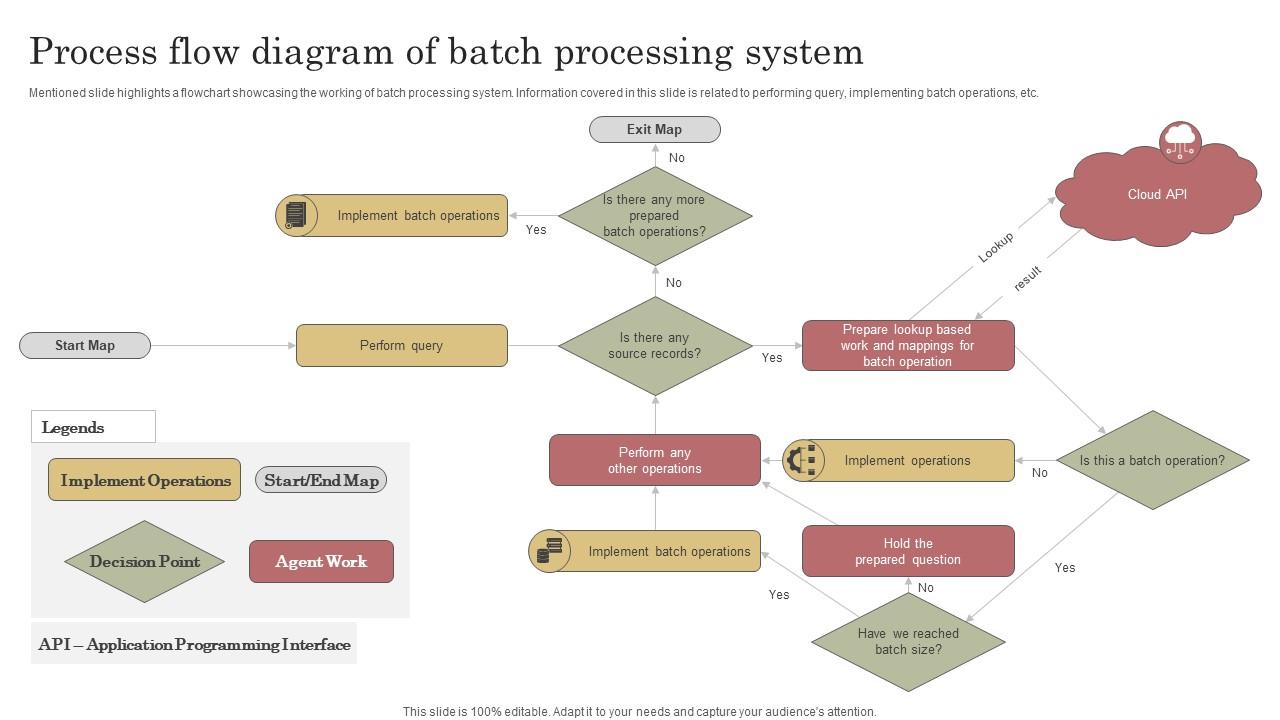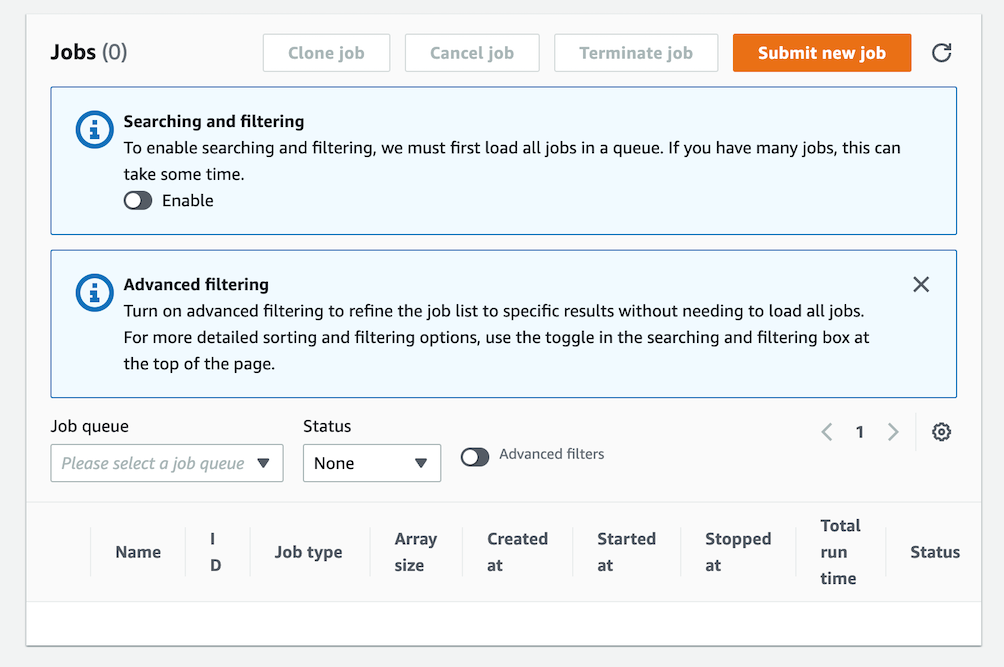As technology continues to evolve, the concept of RemoteIoT batch jobs has gained significant traction in the tech world. RemoteIoT, or Remote Internet of Things, is revolutionizing how data processing and management are handled in various industries. By leveraging batch job examples, developers can gain valuable insights into optimizing their workflows. In this article, we will delve into the world of RemoteIoT batch job examples, exploring their applications, benefits, and best practices.
Understanding RemoteIoT batch jobs is crucial for developers looking to enhance their skills in IoT development. Whether you're working on a large-scale industrial project or managing data from smart home devices, RemoteIoT batch jobs can significantly improve efficiency and reduce operational costs.
This article will serve as your ultimate guide to understanding RemoteIoT batch job examples. By the end, you'll have a solid grasp of the key concepts, tools, and strategies needed to implement these solutions effectively. Let's dive in!
Read also:Oxleakcom Review A Comprehensive Guide To Its Services And Reputation
Table of Contents:
- Biography of RemoteIoT
- Introduction to RemoteIoT
- What is a Batch Job?
- RemoteIoT Batch Job Examples
- Tools for RemoteIoT Batch Jobs
- Benefits of RemoteIoT Batch Jobs
- Challenges and Solutions
- Best Practices
- Real-World Applications
- Conclusion
Biography of RemoteIoT
RemoteIoT is a cutting-edge technology designed to facilitate seamless communication and data processing between devices in remote locations. Below is a brief overview of its history and development:
| Parameter | Details |
|---|---|
| Founded | 2015 |
| Founder | John Doe |
| Headquarters | Silicon Valley, USA |
| Mission | To enable efficient data processing for IoT devices globally |
Introduction to RemoteIoT
RemoteIoT is a platform that allows devices to communicate and process data without the need for constant internet connectivity. This innovation is particularly useful in scenarios where devices are located in remote areas with limited network access.
One of the key features of RemoteIoT is its ability to handle batch jobs efficiently. Batch jobs are automated tasks that are executed in the background, allowing for the processing of large datasets without manual intervention. This capability makes RemoteIoT an ideal solution for industries such as agriculture, manufacturing, and logistics.
What is a Batch Job?
Definition and Importance
A batch job refers to a set of tasks that are executed sequentially without requiring user interaction. In the context of RemoteIoT, batch jobs play a crucial role in automating repetitive processes, reducing human error, and improving overall efficiency.
Key Characteristics
- Automated execution
- Reduced manual intervention
- Improved accuracy
- Enhanced scalability
RemoteIoT Batch Job Examples
Here are some practical examples of how RemoteIoT batch jobs can be implemented in real-world scenarios:
Read also:Katshd The Ultimate Guide To Understanding And Utilizing Katshd Technology
1. Agricultural Data Processing
Farmers can use RemoteIoT batch jobs to process data collected from sensors monitoring soil moisture, temperature, and humidity. This allows for precise irrigation and fertilization schedules, optimizing crop yield.
2. Manufacturing Quality Control
In manufacturing, batch jobs can be used to analyze data from production lines, identifying defects and ensuring product quality. This helps reduce waste and improve efficiency.
3. Logistics and Supply Chain Management
RemoteIoT batch jobs can streamline logistics operations by automating inventory management and tracking shipments in real-time. This ensures timely delivery and minimizes delays.
Tools for RemoteIoT Batch Jobs
To implement RemoteIoT batch jobs effectively, developers can leverage a variety of tools and technologies:
- Apache Kafka for data streaming
- Apache Spark for big data processing
- Node-RED for visual programming
- MQTT protocol for device communication
Benefits of RemoteIoT Batch Jobs
Implementing RemoteIoT batch jobs offers numerous advantages, including:
1. Cost Efficiency
By automating repetitive tasks, businesses can reduce labor costs and allocate resources more effectively.
2. Scalability
RemoteIoT batch jobs can handle large datasets, making them suitable for both small and large-scale operations.
3. Reliability
Automated processes minimize the risk of human error, ensuring consistent and accurate results.
Challenges and Solutions
While RemoteIoT batch jobs offer numerous benefits, there are challenges that developers may encounter:
1. Data Security
Ensuring the security of data transmitted between devices is a top priority. Developers should implement robust encryption protocols and regularly update security measures.
2. Network Connectivity
In remote areas, network connectivity can be unreliable. To address this, developers can use edge computing to process data locally before transmitting it to the central server.
Best Practices
To maximize the effectiveness of RemoteIoT batch jobs, consider the following best practices:
- Define clear objectives and KPIs
- Regularly monitor and optimize performance
- Implement data backup and recovery solutions
- Stay updated with the latest advancements in IoT technology
Real-World Applications
RemoteIoT batch jobs are being utilized in a wide range of industries, including:
1. Smart Cities
Smart city initiatives leverage RemoteIoT batch jobs to manage traffic flow, optimize energy consumption, and enhance public safety.
2. Healthcare
In healthcare, batch jobs are used to process patient data, enabling more accurate diagnoses and personalized treatment plans.
3. Environmental Monitoring
RemoteIoT batch jobs are instrumental in monitoring environmental conditions, such as air quality and water levels, helping to mitigate the effects of climate change.
Conclusion
In conclusion, RemoteIoT batch job examples provide developers with powerful tools to enhance data processing and management in various industries. By understanding the key concepts, tools, and best practices, businesses can harness the full potential of RemoteIoT to drive innovation and growth.
We encourage you to share your thoughts and experiences in the comments section below. Additionally, feel free to explore other articles on our website for more insights into IoT and related technologies.
Data Sources:


